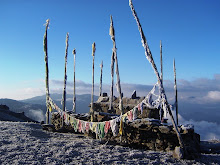Keith Basso. Wisdom sits in Places.
This is a very important piece of work in the literature of space and place. Its importance comes from the fact that it has engaged with cultural productions that were less considered in the anthropological approximation to how people live their worlds. For Basso, the act of name-placing and the name-worlds they imply was never really thought in depth. His focus in how “people speak with names” in the Apache experience in Arizona is what makes very compelling this book. It somehow resembles Bachellard’s ideas of the “poetic of space” and daydreaming we’ve seen last week but in a very different way. Here places are containers of wisdom and moral stories that people gain access in their everyday talks, when move through space, and when people are experiencing difficult situations. Basso is trying to show something that I guess is more present than we thought, how stories are emplaced, then spacialized, and reenact through spatial/temporal imagination. But there is a degree of depth one can say among these stories, some of them just “tell” or “recall” specific stories associated with topological and mnemonic forms of knowledge. But others have a “deeper” wisdom, according to Basso, when people “speak with names” they are relearning and embodying what the elders had done and, therefore, how people should or should not behave as a collective entity. These are moral cautionary tales sitting in places, ready to be perceived and apprehended by Apache people (or someone that has the capacity to perceive it such as Basso). I was trying to think about this idea of name-placing in my own society and see if I can find examples. I think people could say, “if you wear that dress you’ll end up in Godoy Cruz” (implying that you look like a travesti) or if a gay friend says, “I broke with my boyfriend and I went to Santa Fe and Callao” (implying he went to pick up a sex partner). But these two levels that Basso shows, the “surface” one which implies storytelling about specific places with particular associations, and the “deeper” one that involves strong sense of morality and even rules of what should or should not be done, are not easily ready to find in my mind when thinking on my own society. Still I consider that if we look with Basso’s eyes we may find these sorts of stories. The only problem I have with Basso’s accounts is quite obvious: his approach can be seen as essentialist, he is not so far away of Gupta’s and Ferguson’s critique to the usual idea of fixing people to places, the idea one people = one culture = one place. Only that he does it with a subtle approach. He has a very poetic and pragmatic way, he says these places, and the Apache way of naming them are constantly being created, it is an unstoppable process. But the problem I have is that not only wisdom sits in places, but ignorance too. I think Basso in his attempt to localize and highlight the name-placing process he somehow forgot to show the tactical and spontaneous use (in de Ceurtian’s terms) of places. It seems these are mythical and out-of-the-time places but they have particular histories and struggles not only between Apaches and the surrounding society, but also, and more importantly, among Apaches themselves like in the story of the family that did not want to share their corn and were enclosed in their home and have to shit inside. His linguistic and phenomenological approach leaves very few spaces for considering political struggles and conflicts among the Apache. It seems that everyone perceives the same and think the same (although he differentiate elder from youngsters, and more or less wise people) in relation with these places. I think overall Basso makes a very respectful and insightful analysis of Apache place-making and experience-sense of places and in doing so he moves into untransited cultural zones that problematize the relationship between the here and the past and the here and now. And as I said the only problem I’ve found is his tendency to flatten the social inner differences and to dissociate time from socio-political history (only certain forms of history are considered) in relation with those places.
2666 III: Order with the Possibility of Suicide
Hace 2 días.


No hay comentarios.:
Publicar un comentario